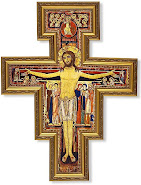Four Witnesses

When I speak of the early church, I’m going beyond the 15th century (where most people believe is a good place to start), I’m talking about the 1st and 2nd century early church. These Four Witnesses do not have a single word in their writings later than A.D. 200. They fill ‘the gap’ between apostolic and post apostolic Christianity. For example, Bennett’s work provides five certified epistles of Ignatius, all of them composed in or about A.D 107, which date them to within a decade of the close of the Apostolic age.
Their writings are clear, plain, and substantive instruction about what the early Church actually believed, and much of it on major topics that have become hopelessly controversial in our time. These four witnesses were not a bit shy about interpreting the Holy Scriptures written so recently by the Apostles in whose steps they followed. They interpreted them vigorously, boldly, and with authority!
We have to ask those who want to interpret scripture on their own, what are you to do when you get into a theological disagreement with the four men who got their bible training more or less directly from the Apostles? Turn to those writers in the 15th century, because their knowledge is much more advanced than those in the 1st century? Or turn to the 20th century, where you have hundreds of different yet ‘validated’ sources of information from the Internet or other modern day theological writers, including yourself?
I guess what it comes down to is, Who’s to say? Is there ever going to be any certainty anywhere in matters of faith? Is there any evidence that such an answer was given? Well, the early Christians believed there was. Cyprian of Carthage A.D. 251, a bishop and martyr in Africa, summarizes the ancient understanding of the Church in a few elegant words:
The Lord says to Peter: “I say to you,” He says, “that you are Peter, and upon this rock I will build my Church, and the gates of hell will not overcome it. And to you I will give the keys of the kingdom of heaven: and whatever things you bind on earth shall be bound also in heaven, and whatever you loose on earth, they shall be loosed also in heaven” [Mt16:18 – 19]. And again he says to him after His resurrection: “Feed my sheep” [Jn 21:17]. On him He builds the Church, and to him He gives the command to feed the sheep; and although He assigns a like power to all the Apostles, yet He founded a single chair, and He established by His own authority a source and an intrinsic reason for that unity. Indeed, the others were that also what Peter was; but a primacy is given to Peter, whereby it is made clear that there is but one Church and one chair. So too, all are shepherds, and the flock is shown to be one, fed by all the Apostles in single-minded accord. If someone does not hold fast to this unity of Peter, can he imagine that he still holds that faith? If he desert the chair of Peter upon whom the Church was built, can he still be confident that he is in the Church?
There are many others writings of these four witnesses that I would love to have shared with you. I can only recommend that you pick up a copy of Bennet’s, Four Witnesses, so that you can experience and live for a while, in the Church’s holiest and most Spirit-filled age.









2 comments:
Art
Pretty impressive. I like what I am reading.
David
wow, that exerpt was right to the point wasn't it! i can't wait to read that book, thanks for sharing!
Post a Comment